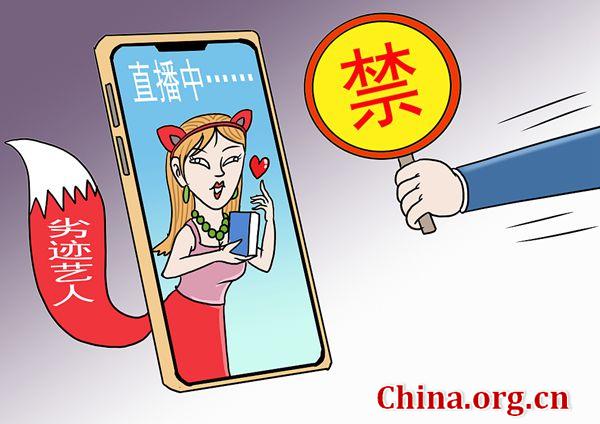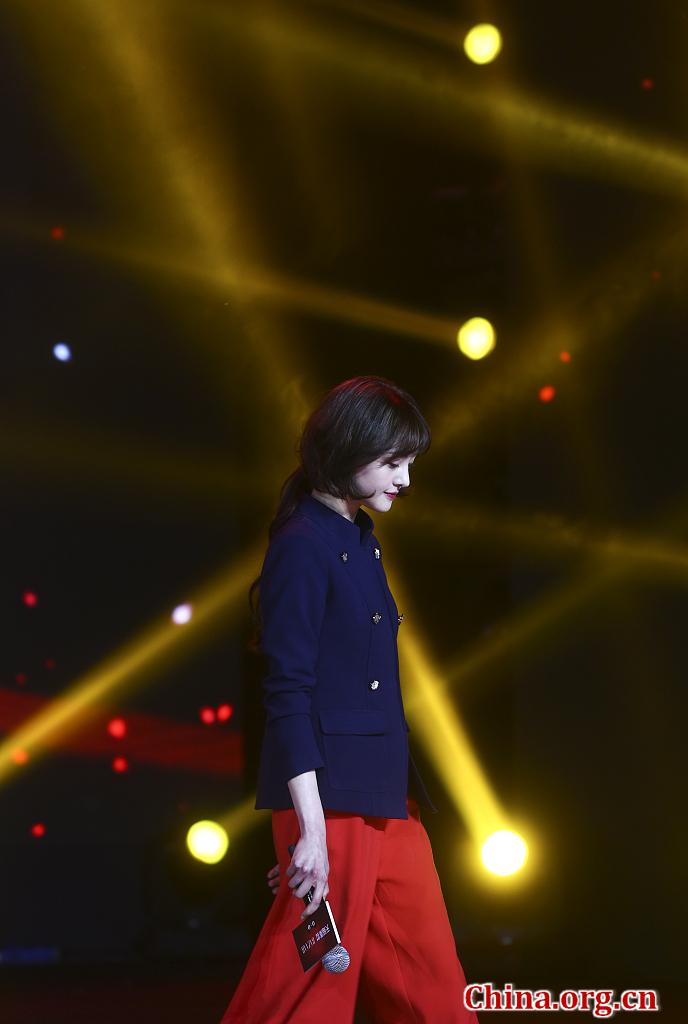China releases new moral guidelines for entertainers
- By Zhang Rui
 0 Comment(s)
0 Comment(s) Print
Print E-mail China.org.cn, February 8, 2021
E-mail China.org.cn, February 8, 2021
A new list of moral guidelines for actors and performers has been issued by the Chinese Association for Performing Arts and outlines how to deal with individuals involved in scandals and other perceived bad behaviors.

The Management Measures for the Self-Discipline of Acts in the Performing Arts Industry have been created to "continuously improve the professional quality of entertainers in the performance industry, regulate their professional behaviors, strengthen the management of self-discipline among entertainers, establish a positive professional image for entertainers, and promote the healthy development of the performance industry," the guidelines note.
The acts applicable to these guidelines include but are not limited to singers, musicians, bands, dancers, opera performers, stage drama actors, film actors, stand-up comedians, magicians, and acrobats.
The guidelines list 15 acts that are considered nefarious and will be punished, such as harming China's national security, honor, and territorial integrity; inciting ethnic hatred and discrimination; being involved with cults and superstitions; engaging in criminal acts like pornography, gambling, violence, terrorism, or drugs; drunk driving; endangering social morality or harming China's cultural traditions; lip-syncing during commercial performances; making statements and spreading false information that is made in an attempt to break the law, disrupt public order, or distort history; maliciously violating or failing to perform as per the contract; and insulting or slandering others.
The trial guidelines will become effective as of March 1. The Chinese Association for Performing Arts said that they formulated these measures per the Regulations on the Administration of Commercial Performances and Detailed Rules for the Implementation of the Regulations on Commercial Performances.
An ethics committee will be established to monitor and punish scandalous performers. Members of the committee will consist of representatives from performance venues, art troupes, performing arts managers and agents, role model artists, executives from online livestreaming service management, experts from relevant mass organizations such as the Central Committee of the Communist Youth League and All-China Women's Federation, and representatives from media outlets, law firms, and relevant industries. Experts from certain areas will also be hired if needed.
Disciplinary measures include a united industry and cross-industry blacklisting ranging from 1-5 years or even a permanent ban. Notorious actors will also be banned from award eligibility and sponsorship opportunities. Members of the Chinese Association for Performing Arts will not be allowed to invite banned entertainers to perform.
Entertainers allegedly involved in scandalous behavior will be able to appeal to an ethics committee who will evaluate evidence provided by the entertainers and their agents as well as information from administrative departments and other industry entities before reporting their findings to the Ministry of Culture and Tourism of China. Banned entertainers will also be able to apply to resume work but will first need to obtain approval from the association's ethics unit.
The association will further monitor, guide, and educate the resuming entertainers to engage in industry training and professional education as well as charity projects to reshape their image.

China's population is increasingly vocal against celebrities who exhibit bad behaviors. For example, Chinese actress Zheng Shuang, who was suspected to be involved in a surrogacy scandal that culminated in her wanting to abandon her surrogate-born children in the US, triggered a stream of anger from netizens. The scandal caused Zheng to lose commercial deals with film studios, TV networks, fashion magazines, and brands such as Prada. Renowned writer-and-director Guo Jingming and director Yu Zheng also encountered a pan-industry boycott at end of last year after having been found guilty of plagiarizing years ago.
Back in 2014, the then-State Administration for Radio Film and Television issued a directive sent to major broadcasters, film distributors, and producers to ban individuals with "bad records," including those involved in illegal and criminal activities such as drug use and prostitution. The administration also demanded that radio and television broadcasting organizations stop broadcasting movies, short movies, TV shows, and online dramas that featured the relevant stars. However, with the emergence of new entertainment channels, some such entertainers have recently started to reemerge via livestreaming and certain charity events.






Go to Forum >>0 Comment(s)